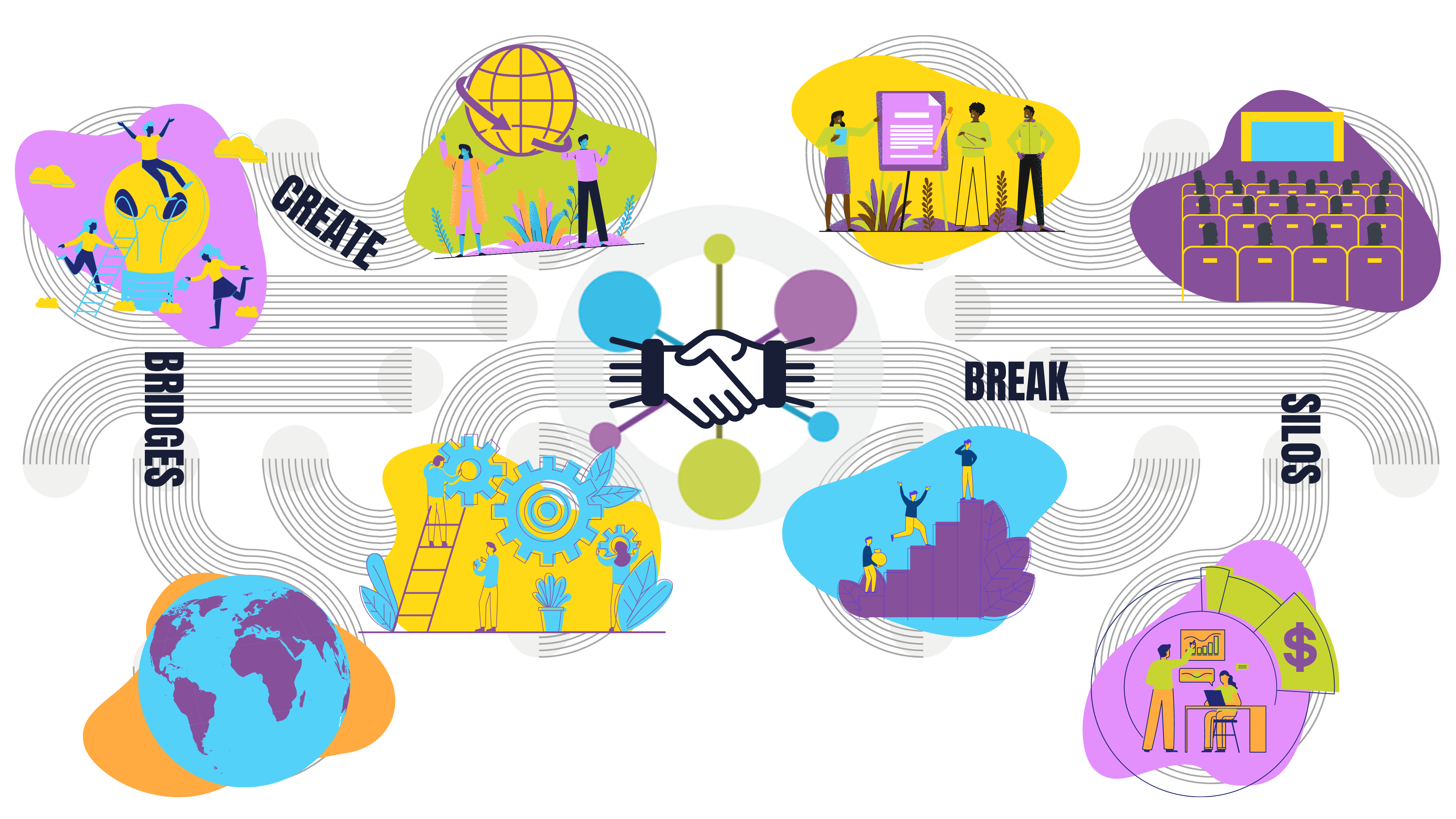
In March of 2016, the University of California, San Francisco established a new organized research unit, the Quantitative Biosciences Institute (QBI). The institute’s mission was to use quantitative biology methods to promote a deeper understanding of basic biological mechanisms that have implications for human diseases. Just four years later, in March of 2020, the QBI was leading a global collaboration to understand and treat SARS-CoV-2, the virus that causes COVID-19. The young institute has been able to meet and exceed its expectations because of its focus on collaboration as a central pillar that makes biology research succeed.
In the early months of the COVID-19 pandemic, QBI Director Nevan Krogan recognized that his institute, with its interdisciplinary collaborations focused on disease research, was uniquely positioned to research this novel virus. He and his colleagues, then about 10 labs, decided to direct all their focus towards COVID-19. The QBI Coronavirus Research Group (QCRG) grew from 10 labs to 42 within a few weeks. As different labs came together, they organized themselves into subgroups tackling various questions related to COVID-19. In an interview with Nature about the QCRG, Krogan commented that “different disciplines fit together much more seamlessly than I would have expected.” The QCRG was a huge success, publishing their first papers within a couple of months. They mapped interactions between SARS-CoV-2 and host proteins and explored FDA-approved drugs that might be able to treat COVID-19 based on this interactome.
But the success and legacy of the QCRG is not just its research on COVID-19. Over the last several months, as labs have begun to turn back to their usual focuses, the collaborations that were formed during the pandemic have continued to prove invaluable to the groups that participated in this global research project. Scientists who participated in the QCRG are coming out of lockdown with an arsenal of new potential collaborators. Krogan urges his colleagues to bring the same urgency and willingness to collaborate to all of their projects, and believes that it will improve their research. He is familiar with this approach to research from years of working with the QBI, and the COVID-19 pandemic showed the world what collaboration can do for scientists.
We at the QBI hope to continue to show the importance and strength in research collaboration. Through the Medium publication, we will share our own stories of research projects and experiences of scientists to provide a window into what our collaborative research looks like, and how beneficial and groundbreaking it can be. We hope you follow along, and join us in breaking down silos towards more open and progressive science!
by Leila Shokat